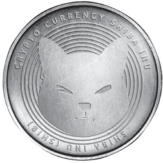Shiba Inu (SHIB) burst onto the cryptocurrency scene in August 2020 and quickly became one of the most talked about and meme-worthy digital assets. Designed to be an Ethereum-based alternative to the popular Dogecoin, Shiba Inu was created in August 2020 by an anonymous person or group using the pseudonym “Ryoshi”. The project tapped into the Shiba Inu dog meme that had already captured public imagination, helping propel SHIB’s popularity.
Shiba Inu Overview
At its core, SHIB operates as a decentralized cryptocurrency that enables peer-to-peer transactions with very low fees. The total supply at launch was 1 quadrillion SHIB, of which 50% was locked permanently on Uniswap and the other 50% was burned to Ethereum co-founder Vitalik Buterin’s wallet as a gift. This burning has made SHIB deflationary. Thus, Shiba Inu is a type of digital currency, which exists only online. It experienced a significant price increase in 2021 but still trades for tiny fractions of a dollar.
Key Products
Key products in the Shiba Inu ecosystem include the decentralized exchange ShibaSwap, where users can stake, provide liquidity, farm rewards and access DeFi services. Shiboshis are 10,000 generative NFT collectibles that provide utility in games and discounts. The Shiba Inu Incubator helps launch new projects on ShibaSwap. The Shibarium layer-2 solution aims to reduce gas fees and improve scalability.
SHIB is also developing its own metaverse world called the Shiberse, which will allow users to explore, play games, build experiences, and own virtual land. The lively Shiba Inu community organizes events and campaigns to drive awareness and burn tokens. The ecosystem primarily operates on the Ethereum blockchain, showcasing its decentralized and community-driven nature.
“SHIB is also developing its own metaverse world called the Shiberse, which will allow users to explore, play games, build experiences, and own virtual land.
Token Use-Cases
Shiba Inu is a meme coin, which has attempted to build a reputation by exploring other use cases, such as:
· Medium of exchange – SHIB can be used as a payment method for goods and services from merchants who accept it.
· Staking – SHIB tokens can be staked on platforms like ShibaSwap to earn rewards and interest.
· DeFi – ShibaSwap allows users to provide liquidity, stake, farm rewards, and access decentralized finance services.
· NFTs – Users can mint NFTs and trade them on the Shiboshis marketplace.
· Metaverse – Shiba Inu is developing its own metaverse called the Shiberse, which will allow greater utility for SHIB.
Network Type
Shiba Inu operates on the Ethereum blockchain, but it has also introduced its proprietary Layer 2 blockchain network called Shibarium to improve scalability and security within the decentralized finance space.
Governance
- Governance within the Shiba Inu ecosystem is facilitated through a token called BONE, which acts as the ecosystem’s governance token. BONE holders, part of the so-called “ShibArmy”, can vote on proposals through the Doggy DAO (Decentralized Autonomous Organization).

- The Doggy DAO governs the entire ecosystem, with the Shib Doggy DAO Foundation executing decisions made by the DAO and managing the assets held by the DAO.
- The governance structure is designed to ensure fairness and inclusivity, divided into four parts, each dedicated to a core token within the Shiba Inu ecosystem to grant an equal voice to all stakeholders.
- An update named Shibarium has brought about enhanced scalability, security, staking, and community governance to Shiba Inu’s operations in 2023.
Shariah Opinion
The SHIB token’s genuine utility, like many other meme tokens, is questionable in Shariah. The use cases that are stated can be designed for any crypto, however, for the most part, such cryptocurrencies are purely used for speculation. It is among the primary principles of Shariah that only an asset that has a bona fide benefit and utility is traded. The Maliki scholar Imam Ibn al-Arabi (rahimahullah) mentions that an asset worthy of transacting and trading is that asset which people genuinely aspire, which is capable of being used for a genuine purpose and it is lawful to use from a Shariah perspective. The Shafi’i Imam al-Zarkashi (rahimahullah) states that an asset in Shariah is that which has utility and benefit. The illustrious Hanafi jurist Ibn Nujaym (rahimahullah) quoting from al-Hawi al-Qudsi states a similar principle that assets have been created for the benefit of mankind. The great Hanbali jurist Imam al-Mardawi (rahimahullah) states that assets that are lawful in Islam are those which have a Shariah compliant and valid use case. These descriptions stem from a Shariah concept known as Mal. Mal is that thing which people incline towards. Generally, reasonable people are only inclined towards something when they perceive a benefit therein. And that is the essence of Mal, something that benefits. Anything that is beneficial and has a clear, Halal utility is Shariah compliant. Anything that doesn’t have a utility or does not have a Halal benefit, then it is not Shariah compliant.
It is very common in the crypto space to have tokens created to serve as a ‘currency’. Many such tokens state that they are currencies or payment tokens. In many instances, such tokens serve no such purpose. The use of ‘currency’ as a utility is very popular, but such tokens do not generally function as such from a Shariah perspective.
There are thousands of such cryptos. The tokenomics and fundamentals are questionable, the assets are hyped, and prices are typically driven by FOMO (fear of missing out), with
some even manipulated through pump and dump schemes. Many a time, such assets anticipate a major price correction.
It is not possible to give any concrete ruling on such matters, and only opinions can be issued at best. However, there are concerns of whether SHIB has any real utility from a Shariah perspective and whether it is the subject of manipulation. What starts of as a meme and is hyped by influencers has a Shariah question on the substance and Maliyya (Shariah-acceptable property). As such, it is best to avoid SHIB given its history.
Conclusion
Based on and subject to the foregoing information, and for the purposes of this conclusion, we realise that the use cases and focus of SHIB do not add any real-world value and promote a meme culture which arguably has very little benefit. Shariah principles encourage using, investing, and spending time in activities that are beneficial and value adding. Therefore, we cannot express SHIB to be in congruence with the Shariah principles and rulings.
*Your Attention is drawn to the term ‘Shariah’ and ‘Shariah compliant’ and its interpretation thereof as expressed in the following link https://shariyah.net/glossary/



